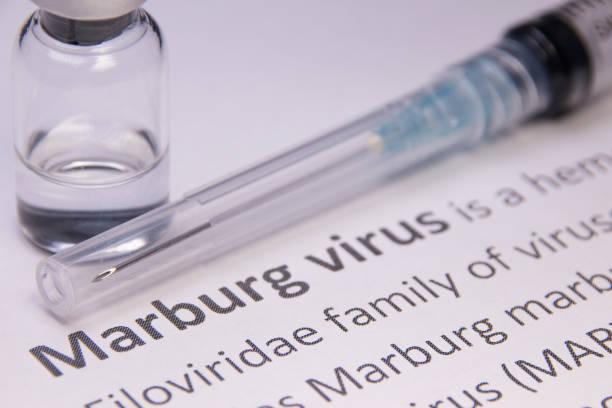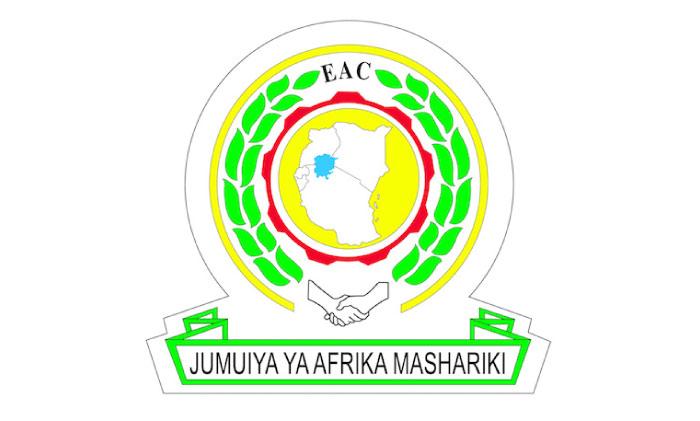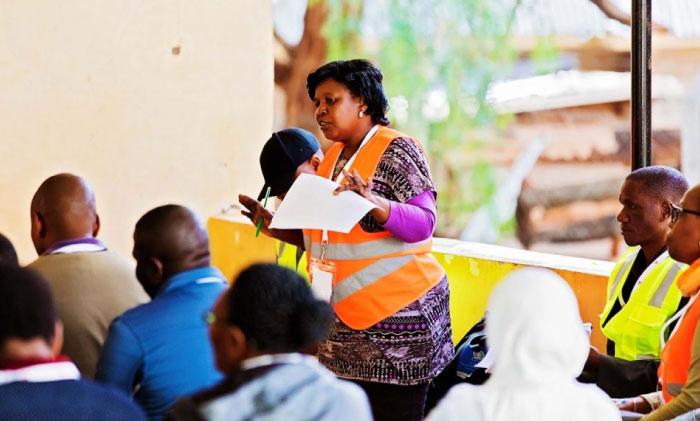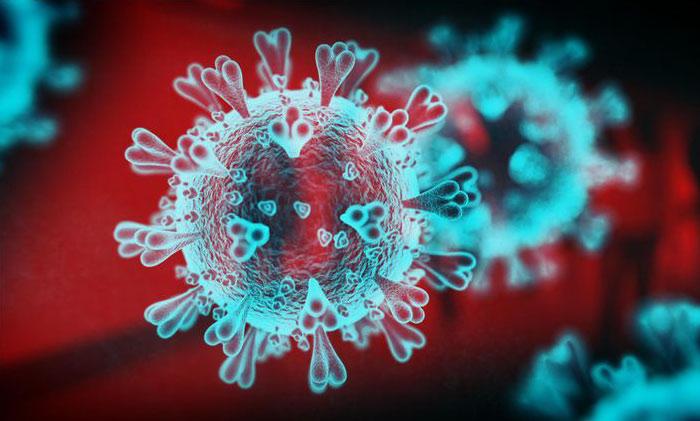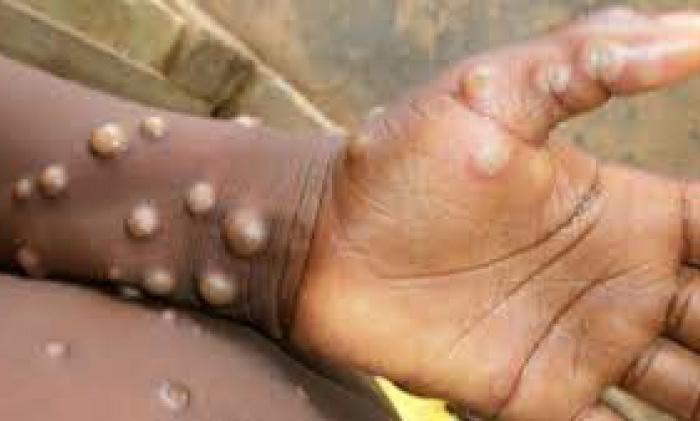In January 2020 the World Health Organization (WHO) declared the outbreak of a new coronavirus disease in Hubei Province, China, to be a Public Health Emergency of International Concern, as there was a high risk of the 2019 Coronavirus Disease (COVID-19) spreading to other countries around the world. As of 2nd April 2020, more than 896,450 cases have been confirmed in more than 200 countries, more than 45,526 people have died from the disease, but about 135,000 have also already recovered since the outbreak started. The EAC region did not stay unaffected and has to date confirmed cases in Burundi, Kenya, Rwanda, Tanzania and Uganda. Most infected people developed only mild symptoms and the average global death rate among confirmed cases of about 4 % is low compared to that of other infectious diseases which we are facing in the region, such as HIV/AIDS, Measles or Ebola. This rate might be almost 10 times higher than average for those over 80, and much lower for those under 40. Most affected by the pandemic is less the health sector, but the economy as a whole, including trade and tourism, as main life-lines in the region.
To succeed in combating the pandemic, all sections of our society including employers and businesses – must play a role and work together. The virus that causes the Coronavirus disease (COVID-19) is a new strain that had not been identified in humans until the outbreak of the disease in 2019.
Coronaviruses (CoV) are a large family of viruses that are common in animals and cause illness in humans ranging from a mild cold to more severe diseases such as the Middle East Respiratory Syndrome (MERS-CoV) and the Severe Acute Respiratory Syndrome (SARS-CoV).
Coronaviruses are zoonotic, meaning they are transmitted between animals and people. Detailed investigations found that SARS-CoV was transmitted from civet cats to humans and MERS-CoV from dromedary camels to humans. Other known coronaviruses are circulating in animals without causing illness in humans.
The COVID-19 outbreak has taken its toll on many countries worldwide and has caused huge economic losses with various sectors affected and impacted upon.
In the following we are providing answers to frequently asked questions regarding COVID-19:
What is a Coronavirus? Coronaviruses are a large family of viruses which occur naturally in animals and may cause illness in animals and humans. In humans, coronaviruses cause respiratory infections ranging from common colds with mild symptoms to more severe diseases such as the Middle East Respiratory Syndrome (MERS) and the Severe Acute Respiratory Syndrome (SARS). The most recently discovered virus in this family causes the Coronavirus Disease, COVID-19.
What does COVID-19 stand for? The Coronavirus Disease is a flu-like respiratory disease that is highly contagious.
What is COVID-19? The Coronavirus Disease is a flu-like respiratory disease that is highly contagious.
What are the symptoms of COVID-19? The most common symptoms of COVID-19 are fever, tiredness, and dry cough. Some patients may have aches and pains, nasal congestion, runny nose, sore throat or diarrhoea. These symptoms are usually mild and begin gradually. Some people become infected but don’t develop any symptoms and don't feel unwell. Most people (about 80%) recover from the disease without needing special treatment. Around 1 out of every 6 people who get COVID-19 becomes seriously ill and develops difficulty breathing.
Who is most at risk of catching COVID-19? All people are at risk once exposed to the virus that causes COVID 19, however, older people, and those with underlying medical conditions like high blood pressure, heart diseases and diabetes or suppressed immune systems, such as people with HIV/AIDS or cancer, are most at risk and more likely to develop serious symptoms.
Do I need to worry about my children? Cases in which children got infected have also been reported. However, children and even youths seem to be much less affected by the Coronavirus Disease than older people.
How does COVID-19 spread? The disease can spread from person to person either directly through small droplets when an infected person sneezes, coughs or exhales. Or people catch COVID-19 when they touch contaminated objects and surfaces and then touch their eyes, nose or mouth thereby transmitting the virus.
How can I prevent myself from getting infected? The best way to prevent an infection is to avoid exposure to the virus. This can be through thorough hygiene, by avoiding contact with infected people and by keeping a distance of about 6 feet to other people, as the virus spreads mainly from person-to-person and between people who are in close contact with each other. This is especially important for people who are at higher risk of getting very sick.
Which hygiene measures are effective? Clean your hands often by washing them with soap and water for at least 20 seconds, especially after you have been in a public place, or after blowing your nose, coughing, or sneezing.
- You can also use a hand sanitiser that contains at least 60% alcohol. Rub your hands together until they feel dry.
- Avoid touching your eyes, nose, and mouth with unwashed hands.
Should I wear a facemask to protect myself against the virus? Do not need to wear a facemask unless you are sick or are caring for someone who is sick (and they are not able to wear a facemask). Leave the masks to those who really need them.
What can I do to protect others if I am sick or have tested positive for the Coronavirus Disease? Stay home if you’re sick, except to get medical care, even if it is not yet clear if you are infected with the Coronavirus or just suffer from a common cold.
Also:
- Cover your mouth and nose with a tissue when you cough or sneeze or use the inside of your elbow and wash it afterwards.
- Throw used tissues in the trash.
- Immediately wash your hands with soap and water for at least 20 seconds or clean your hands with a hand sanitiser that contains at least 60% alcohol.
- Wear a facemask when you are around other people (e.g. when sharing a room or vehicle and before you enter a healthcare centre
- First clean and then disinfect frequently touched surfaces daily, such as tables, doorknobs, light switches, countertops, handles, desks, phones, keyboards, toilets, faucets, and sinks.
Can someone who is released from COVID-19 quarantine still spread the disease? Someone who has been released from COVID-19 quarantine is no longer considered a risk for spreading the virus because he/she did not develop symptoms during the incubation period.
Quarantine means separating a person (or group of people) who has been exposed to a contagious disease but has not developed symptoms from others who have not been exposed, to prevent the possible spread of that disease.
Quarantine is usually established for the length of the incubation period of the communicable disease, which is the time span during which people would have developed symptoms after exposure. For COVID-19 this period is 14 days from the last date of exposure, because 14 days is the longest incubation period seen for similar coronaviruses.
How can I contribute to avoiding stigmatising people related to COVID-19? Fear and anxiety can lead to social stigma, for example, towards people who were quarantined for COVID-19. Stigma is associated with a lack of knowledge about COVID-19 and how it spreads or with gossip and myths.
You can fight stigma and help, not hurt, others by providing social support. You can counter stigma by learning and sharing facts, for example, that viruses do not target specific groups in the population.
Is there a treatment for COVID-19? There is no specific treatment for COVID-19. Don’t believe people who try to sell you remedies and promise that they will cure the disease. Viral diseases can be prevented if a vaccine is available, but they cannot be cured for example with antibiotics. However, supportive cure or treatment can ease accompanying symptoms, such as fever or cough.
Is there a vaccine against COVID-19? So far, no vaccine is available to prevent COVID-19. Patients will receive supportive care and treatment by the health workers to recovery.
Must I fear COVID 19? Every viral disease needs to be taken seriously and COVID-19 is highly contagious. Therefore, it can spread rapidly and infect many people in a short period of time. But, the symptoms of COVID-19 are in most cases mild. Many patients will never even see a doctor. With about 4 % the average death rate for COVID-19 is also rather low compared to other diseases that we are facing in the region. For comparison: The death rate for measles outbreaks of for the Ebola Virus Disease can be above 60 % and up to 100 % of people infected with Rabies will die.
Another example: In China, with a total population of more than 1,4 billion people, only about 80,000 cases of COVID-19 were confirmed.
What can I do to ensure my workplace is safe for me and my colleague? You can reduce working days lost due to illness and stop or slow the spread of COVID-19 if it arrives at your workplaces:
- Make sure your workplace is clean including surfaces (e.g. desks and tables) and objects (e.g. telephones, keyboards). Wipe them with disinfectant regularly;
- Encourage regular and thorough hand-washing by staff and visitors;
- Ensure your workplace has adequate ventilation to allow fresh air to circulate (good respiratory hygiene);
- Keep your colleagues well about COVID-19 and share any new information. But abstain from spreading rumours that have no underlying facts.
Is it safe to use public transport (Dalla Dalla or Matatu) with regard to COVID-19? Passengers in Matatus or Dalla Dallas are usually squeezed, there is no way of keeping a safe distance from a passenger who’s coughing and sneezing and to avoid contamination by droplets from his/her nose and mouth. Therefore, the use of Dalla Dallas is accompanied by a high risk of infection with COVID-19 and other infectious diseases. If at all possible use other means of transport as long as the outbreak of COVID-19 is ongoing as a preventive measure.
Can I attend the church service? This is a very personal decision. Certainly a church service involves a risk of infection as many people gather and sit and stand closely to each other. If you weighed the pros and cons carefully and come to the conclusion that attending the service is more important for you than protecting yourself against a possible COVID-19 infection then you are taking an informed decision. If you attend the service, keep as much distance from the other congregants as possible and avoid shaking hands. You can also address the risk with your pastor or priest and jointly consider how to address the current risk. If you are suffering from COVID-19 do NOT attend the service, as you will put others at high risk.
Are Africans less at risk of contracting the COVID-19 compared to other races? Many myths have started to evolve around COVID-19. One of them states that Africans are immune against the virus. Do not believe in such myths. This disease does not discriminate anybody. Already more than 35 African countries have reported confirmed cases of the COVID-19 disease, a clear sign that none is safe unless strict protective precautions are undertaken.
Does eating bush meat pose a risk for COVID-19 infections? Bush meat is discussed as the possible source of the current Coronavirus pandemic. Coronaviruses and many other pathogens occur naturally in animals. Therefore, the process of meat production from the animals to the plate needs to follow the strict hygiene rules of food safety. Meat should be inspected by the experts in charge and consumers are advised to cook or fry it thoroughly, until it is no longer raw, but well done.
Are patients who recovered from COVID-19 immune against the virus? It is still too early for a final answer. However, there is scientific evidence that a person who got infected with Covid-19 and recovers develops a certain degree of immunity against the strain of the virus that caused the infection. Scientists in China artificially infected Rhesus monkeys with COVID-19 and infected those who survived again with very high amounts of the virus. None of the re-infected monkeys fell sick again. The immune response of Rhesus monkeys is to a certain extent similar to that of humans. Therefore, experts carefully interpret the experiment to conclude that the course of a new infection in humans who recovered from COVID-19 would at least be much milder.
How safe are goods from China? Scientific experiments showed that the virus that causes COVID-19 can survive on clothes or other surfaces for some hours, depending on other factors like temperature, humidity and so on. Should goods from China have been contaminated with the virus, they travelled a long time before they arrive in the EAC region. Therefore, it is rather unlikely that the virus is still active. However, should “goods” in the local definition also include life animals and should they carry the virus, an infection would theoretically be possible. Therefore, China put into place extensive trade bans on wild and exotic animals.
Can I get COVID-19 through second-hand clothes from overseas? The virus that causes COVID-19 can survive on clothes or other surfaces for some hours, depending on other factors like temperature or humidity. However, if the second-hand clothes came from overseas, they travelled a long time and were disinfected before export as recommended by international standards. This makes it very unlikely that the virus survives in second-hand clothes. If you are still suspicious and want to be on the absolutely safe side, wash the clothes at 60 C or more with washing powder. This will safely kill the virus.
What is the difference between the average death rate among confirmed cases and the overall average death rate? According to World Health Organization estimates the average global death rate among confirmed COVID-19 cases is about 4%. The overall death rate is much lower because not all infections are confirmed by testing. Most cases, however, go uncounted because people with mild symptoms will never visit the doctor and therefore do not feature in official statistics. Death rates also depend on a range of factors like your age and general health, and the care you can access. The death rate is increasing exponentially in patients above 60 and is much higher in patients with medical pre-conditions such as diabetes, heart or lung diseases. Avoiding infections in this risk group should therefore have highest priority.

